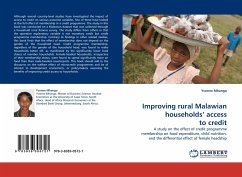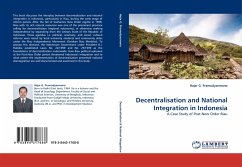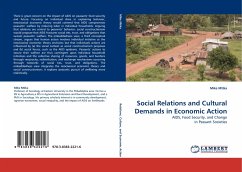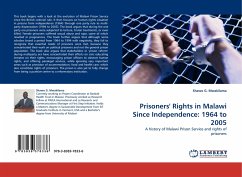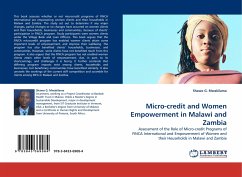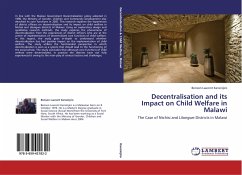
Decentralisation and its Impact on Child Welfare in Malawi
The Case of Ntchisi and Lilongwe Districts in Malawi
Versandkostenfrei!
Versandfertig in 6-10 Tagen
36,99 €
inkl. MwSt.

PAYBACK Punkte
18 °P sammeln!
In line with the Malawi Government Decentralization policy adopted in 1998, the Ministry of Gender, Children and Community Development also devolved its core functions in 2005. This research explores the experiences of district officers on decentralization and its impact on child welfare in Ntchisi and Lilongwe districts of Malawi. Using an exploratory design and qualitative research methods, the study explores the phenomena of decentralization from the experiences of district officers who are at the centre of implementation of decentralized core functions of child welfare. In this regard, the...
In line with the Malawi Government Decentralization policy adopted in 1998, the Ministry of Gender, Children and Community Development also devolved its core functions in 2005. This research explores the experiences of district officers on decentralization and its impact on child welfare in Ntchisi and Lilongwe districts of Malawi. Using an exploratory design and qualitative research methods, the study explores the phenomena of decentralization from the experiences of district officers who are at the centre of implementation of decentralized core functions of child welfare. In this regard, the study goes in-depth to understand whether decentralization has had positive impact on the implementation of child welfare. The study utilizes the functionalist perspective in which decentralization is seen as a system that should lead to the functioning of the social whole. The study concludes that although core functions of child welfare were decentralized, in practice the districts have not fully experienced it owing to the inter-play of various factors and challenges.





